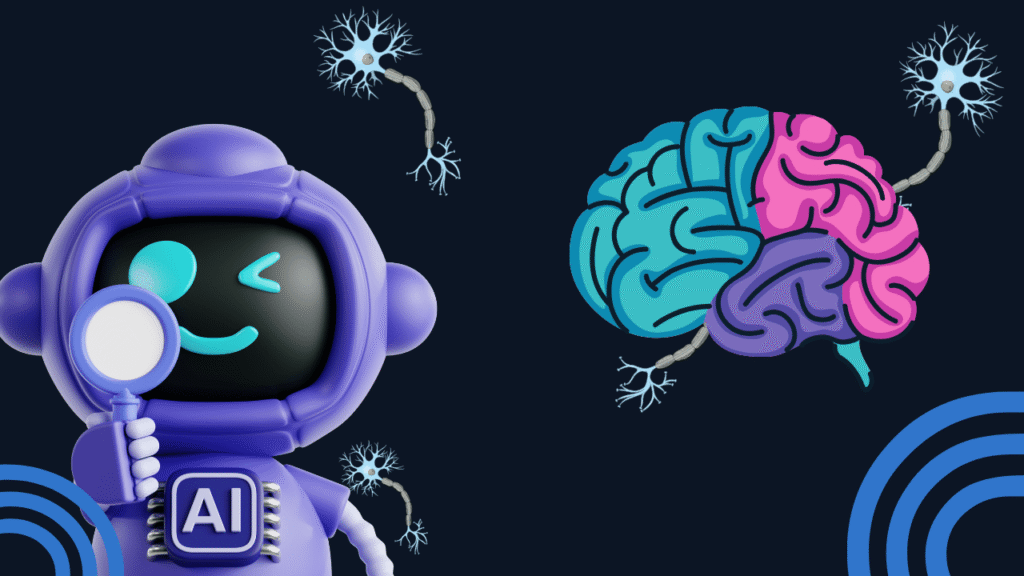Brain health is one of the most important aspects of overall well-being. Monitoring cognitive function, memory, and neurological patterns can help detect conditions like Alzheimer’s, Parkinson’s, epilepsy, and more before they progress. With the rise of advanced technology, AI tools for brain health are making it easier than ever to track and improve mental wellness.
In this article, we’ll explore 10 cutting-edge AI solutions that are transforming how we monitor and protect the brain.
Understanding Brain Health Monitoring
Brain health monitoring involves tracking functions like memory, attention, motor skills, and emotional patterns. This can be especially useful for:
- Detecting early signs of cognitive decline
- Managing chronic neurological disorders
- Supporting rehabilitation after brain injury or stroke
- Improving mental performance in daily life
AI tools for brain health make this process faster, more accurate, and accessible to people at home or in clinical settings.
How AI is Transforming Brain Health Tracking
Artificial intelligence is revolutionizing brain health monitoring by:
- Recognizing patterns in brainwave data and behavioral signals
- Predicting risks of neurological conditions before symptoms become severe
- Providing real-time feedback through wearable devices
- Integrating with medical systems for better patient care coordination
This means that AI tools for brain health are not just for research labs—they are now available for everyday use.
Criteria for Selecting AI Brain Health Tools
When evaluating the best AI tools for brain health, consider:
- Accuracy and reliability of the collected data
- Ease of use for non-technical users
- Integration with medical software or fitness platforms
- Security of sensitive health data
Neurotrack
Neurotrack uses computer-based cognitive assessments to detect early signs of memory loss. Key features include:
- Visual memory and reaction tests
- Personalized cognitive health plans
- Data sharing with healthcare providers
It’s widely used for Alzheimer’s risk detection and ongoing brain health tracking.
BrainCheck
BrainCheck offers gamified cognitive tests to measure attention, memory, and processing speed. Benefits include:
- Easy-to-use web and mobile interface
- Real-time analytics dashboard
- Clinically validated testing methods
This makes it one of the most accessible AI tools for brain health in both clinics and homes.
Mindstrong Health
Mindstrong leverages smartphone usage patterns to detect changes in mood and cognition. Its AI models analyze:
- Typing speed
- Word choice
- Behavioral shifts
This approach is especially valuable for tracking depression, anxiety, and cognitive disorders remotely.
Kernel Flow
Kernel Flow is a non-invasive wearable brain imaging device. It uses advanced sensors to measure:
- Brain activity during cognitive tasks
- Blood flow and oxygen levels in the brain
- Responses to therapy or medication
It’s a powerful option for research institutions and medical professionals.
Muse
Muse is an EEG headband that tracks brainwave activity during meditation and sleep. Features include:
- Real-time feedback through audio cues
- Stress and relaxation tracking
- Integration with health apps
It’s one of the more consumer-friendly AI tools for brain health focused on mindfulness and stress management.
Cognixion
Cognixion develops AI-powered brain-computer interfaces for people with neurological disorders. Highlights include:
- Communication assistance for non-verbal individuals
- Machine learning that adapts to each user’s brain signals
- Integration with smart home devices
OpenBCI
OpenBCI provides open-source EEG hardware for researchers and hobbyists. Capabilities include:
- Customizable AI integrations
- Neurofeedback training for mental performance
- Rehabilitation support for brain injury patients
Emotiv
Emotiv’s portable EEG devices track emotional states, mental workload, and cognitive performance. Uses include:
- Workplace productivity monitoring
- Mental wellness tracking
- Neuromarketing research
NeuroSky
NeuroSky offers affordable brainwave sensors that measure focus, relaxation, and mental engagement. Common uses:
- Education and learning enhancement
- Personal wellness programs
- Brain training games
Neurable
Neurable creates brain-computer interfaces for immersive VR and AR experiences. Benefits include:
- Direct control through brain activity
- Rehabilitation and mental training potential
- Research on cognitive engagement
Challenges in AI-based Brain Health Monitoring
Even with all the progress, AI tools for brain health face challenges:
- Data privacy and HIPAA compliance
- Potential AI bias in predictions
- High costs for advanced medical devices
- Limited awareness in general populations
Future Trends in Brain Health AI
The future of AI tools for brain health is promising, with trends such as:
- Integration with AR and VR for interactive therapy
- AI-guided personalized neurotherapy sessions
- Cloud-based brain research platforms connecting global experts
Conclusion
AI tools for brain health are transforming how we detect, monitor, and manage neurological well-being. From wearable devices to advanced brain-computer interfaces, these technologies can make early detection and personalized care a reality. By adopting the right solution, individuals and healthcare providers can take proactive steps toward better brain health and quality of life.

